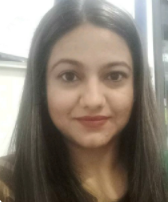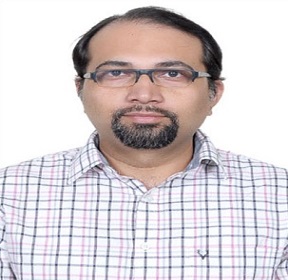Keynote Forum
Mini Mehta
Rajiv Gandhi cancer Hospital and research Institute IndiaTitle: Scope of homoeopathy in palliative care
Abstract:
Pain is a common companion of people receiving palliative care in cancer and at the end of life. Cancer pain is multifactorial and complex. Its impact can be devastating, with increased morbidity and poor quality of life, if not treated adequately. Homeopathy is a "treatment" based on the use of highly diluted substances, which can cause the body to heal itself. Homoeopathy works on the patient in disease rather than disease in the patient by strengthening the body’s immune response Cancer pain management is a challenging task both due to disease process and due to treatment-related side effects; therefore, it requires a holistic approach which can be covered by homoeopathic remedies.Homoeopaths understand that the body mind and emotions are not independent and distinct, but are fully integrated in health, disease and treatment. Based on this holistic perspective, homoeopaths uses remedies prepared from natural sources that fit a patients physical, mental, social and spiritual aspects to stimulate body’s own healing powers. There is a need of multidimensional approach towards the cancer pain palliation and at the end of life in which homoeopathy may play a key role of supportive care.
Homoeopathy may become a valuable treatment in palliative care to provide relief and comfort to the dying patient, and therefore the fear of death may reduce and the family may be better prepared for the bereavement.Homoeopathy can well integrate with standard oncologic cares to improve patient outcome including symptom burden, quality of life and end-of-life outcomes, all achieved with low associated costs as in the case of patients in their end pf life stage need cost effective quality care.
Biography:
Mini Mehta is one of the best Homeopathy Doctors in Rohini Sector 5, Delhi. She has been a successful Homeopathy Doctor for the last 12 years. She has completed BHMS . You can consult Mini Mehta at Rajiv Gandhi cancer Hospital and research Institute.Sector 5, Rohini, Delhi.
Suraj Nagra
Grant Medical College, Mumbai IndiaTitle: Cardiac Myxomas - symptomology, investigations and surgical treatment
Abstract:
From May 2005 to March 2021 , 50 patients of primary or recurrent intracardiac myxoma underwent surgical excision at our institute.Their age ranged from 25 years to 55 years.Out of which 20 males and 30 females.Commonest presenting symptoms are dyspnea and palpitation.35 Left atrial,13 Right atrial , one right ventricular and one left ventricular myxoma.The diagnosis was doen by transthoracic and transesophageal echocardiography.The complete wide excision with margin of 3-5 mm normal surrounding tissue was the main principle of surgery.Right atriotomy,right ventricular and left ventricular surgical approach was used.Post operative echocardiogram was done in all patients before discharge.Maximal followup of five years and minimum followup of 6 months was done after surgery.
Biography:
Dr. Suraj Wasudeo Nagre is an dedicated cardiovascular and thoracic surgeon working as Associate Professor CVTS at Grant Medical College, Mumbai, Maharashtra. After passing MBBS from Nagpur, he got MS General surgery, Jamnagar through all india enetrance.He has done his M Ch CVTS from prestigious institute Seth G S Medical college (KEM) in 2012. Also passed DNB CVTS in 2014. He has extensive clinical research and educational background in the field of congenital as well adult cardiac, vascular and thoracic surgery. His special interest lies in valvular and vascular surgeries.He is Fellow and life member of the Indian association of cardiothoracic surgeons (IACTS-FIACS), Vascular society of India (VSI), Society of minimal invasive cardiovascular and thoracic surgery (SMICTS) and Asian society of cardiovascular and thoracic surgery (ASCVTS). He has been working in government institute for the sake of poor patients refusing high salaried jobs since more than eight years.


